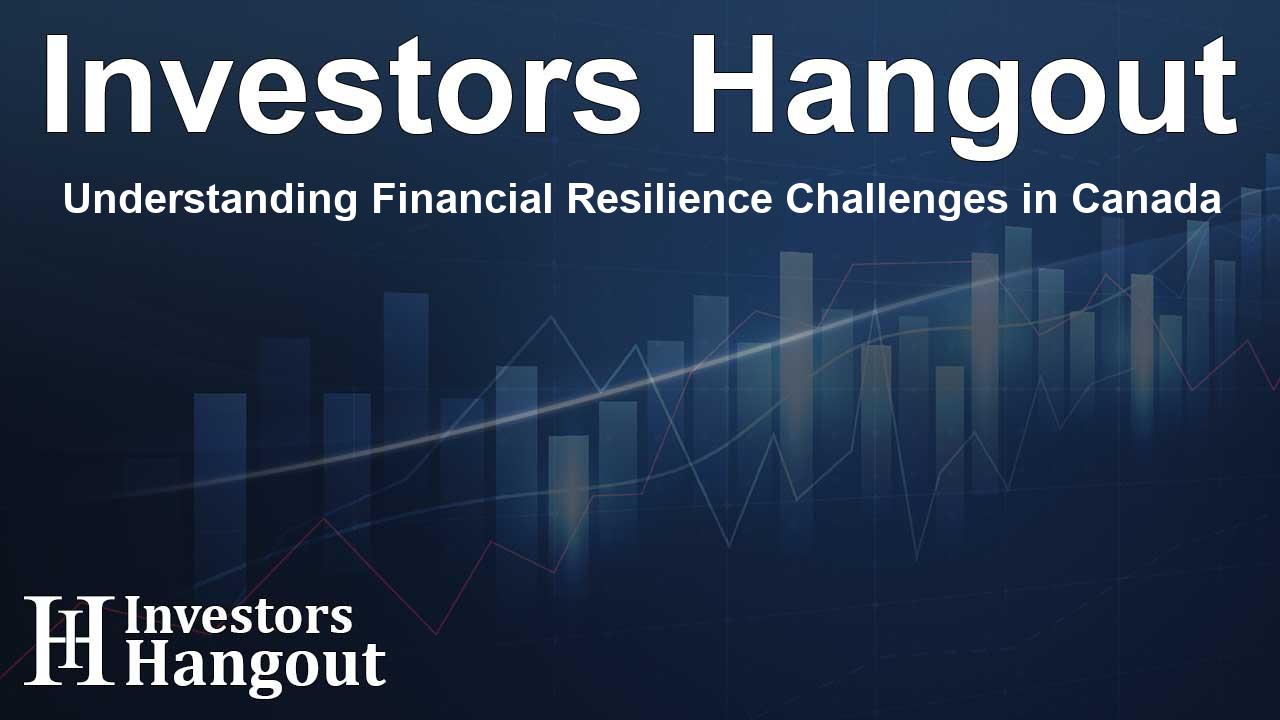Understanding Financial Resilience Challenges in Canada

Financial Resilience Challenges Facing Canadian Households
In recent discussions about economic stability, the important theme of financial resilience among Canadian households has emerged prominently. The latest findings reveal that many Canadians are grappling with significant financial challenges as the cost of living continues to rise faster than income growth. Reports indicate that a staggering 84% of Canadians have experienced this unequally balancing act, amplifying the urgent need for innovative solutions that enhance economic mobility and promote financial wellness.
Key Insights into Financial Vulnerability
The Economic Inclusion and Mobility Intelligence Memo sheds light on several critical factors affecting the financial landscape. One major insight from the report highlights that over half of Canadian households—55%—acknowledge barriers that hinder their ability to generate income. Alarmingly, one in four individuals fully resonates with the sentiment of being restricted by these economic challenges.
The Impact of Job Insecurity
Further compounding these issues is the prevalent job insecurity, which affects approximately 39% of the Canadian workforce. Among that group, nearly 40% are categorized as 'Extremely Vulnerable', displaying a financial resilience score of between 0 and 30. This underscores the likelihood of fluctuating incomes, with one in five Canadians indicating that their household finances vary significantly from month to month, amplifying the struggle for stability.
Pursuing Additional Income Opportunities
In a response to these financial strains, more than one-third of adult households report engaging in additional work or side gigs within the past year. This shift indicates a rising trend of individuals seeking alternative income sources in light of financial pressures, revealing both resilience and determination among Canadians striving for economic comfort.
Organizational Efforts to Foster Economic Inclusion
In light of these findings, key leaders in the financial sector are emphasizing the importance of enhanced access to employment opportunities and economic mobility. Eloise Duncan, CEO of the Financial Resilience Institute, emphasizes the need for collective action, stating that 77% of the population faces financial vulnerability, which transcends income levels. The joint efforts of institutions like Coast Capital and the Financial Resilience Institute aim to address these barriers and improve overall financial well-being.
Innovative Initiatives to Support Financial Growth
Coast Capital’s introduction of the Elevate Chequing Account reflects a proactive approach to sustainably drive income growth among its members. This account stands out not only for its essential banking features, such as free e-Transfers and 24/7 identity theft protection but also for offering free access to Coursera's online training. Such initiatives highlight a commitment to equipping individuals with tools to advance their careers and potentially enhance their financial situations.
Embracing a Holistic View of Financial Health
The collaboration between Coast Capital and the Financial Resilience Institute represents a significant step towards addressing the pressing financial challenges faced by Canadians. By focusing on economic inclusion, these organizations emphasize their mission to empower individuals and communities. Maureen Young, Vice President of Social Purpose at Coast Capital, stresses that the partnership facilitates a deeper understanding of the financial hurdles faced by Canadians, allowing for tailored solutions that foster economic stability.
Frequently Asked Questions
What are the main financial challenges facing Canadian households?
Canadians are facing increasing costs of living that outpace their income growth, with many experiencing barriers to earning money and job insecurity.
How does job insecurity affect financial resilience?
Job insecurity significantly impacts financial resilience, with a portion of the workforce categorized as 'Extremely Vulnerable' due to unstable income.
What steps are being taken to improve financial resilience?
Organizations like Coast Capital and the Financial Resilience Institute are focusing on economic inclusion, offering programs and products that support income growth and financial education.
What percentage of Canadians report barriers to earning?
55% of households in Canada report facing barriers that negatively impact their ability to earn money.
How can individuals improve their financial situation?
Engaging in additional work or pursuing side gigs, along with utilizing resources for financial education, are effective steps individuals are taking to enhance their financial prospects.
About Investors Hangout
Investors Hangout is a leading online stock forum for financial discussion and learning, offering a wide range of free tools and resources. It draws in traders of all levels, who exchange market knowledge, investigate trading tactics, and keep an eye on industry developments in real time. Featuring financial articles, stock message boards, quotes, charts, company profiles, and live news updates. Through cooperative learning and a wealth of informational resources, it helps users from novices creating their first portfolios to experts honing their techniques. Join Investors Hangout today: https://investorshangout.com/
Disclaimer: The content of this article is solely for general informational purposes only; it does not represent legal, financial, or investment advice. Investors Hangout does not offer financial advice; the author is not a licensed financial advisor. Consult a qualified advisor before making any financial or investment decisions based on this article. The author's interpretation of publicly available data shapes the opinions presented here; as a result, they should not be taken as advice to purchase, sell, or hold any securities mentioned or any other investments. The author does not guarantee the accuracy, completeness, or timeliness of any material, providing it "as is." Information and market conditions may change; past performance is not indicative of future outcomes. If any of the material offered here is inaccurate, please contact us for corrections.